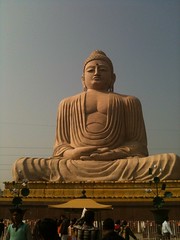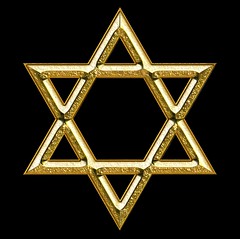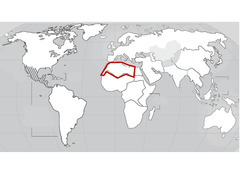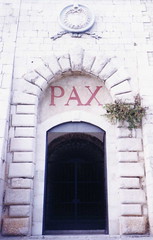AP World History - Period 3 Flashcards
The Post-Classical World, 500-1450
Original from MrsBHatchTEACHER
| 6828250023 | Bedouin | nomadic pastoralists of the Arabian peninsula with a culture based on herding camels and goats | 0 | |
| 6828250024 | Mecca | Arabian commercial center; dominated by the Quraysh; the home of Muhammad and the future center of Islam | 1 | |
| 6828250025 | Medina | town northeast of Mecca; asked Muhammad to resolve its intergroup differences; Muhammad's flight to Medina, the hijra, in 622 began the Muslim calendar | 2 | |
| 6828250026 | Umayyad | clan of the Quraysh that dominated Mecca; later an Islamic dynasty | 3 | |
| 6828250027 | Muhammad | (570-632); prophet of Allah; originally a merchant of the Quraysh | 4 | |
| 6828250028 | Qur'an | the word of god as revealed through Muhammad; made into the holy book of Islam | 5 | |
| 6828250029 | Umma | community of the faithful within Islam | 6 | |
| 6828250030 | Five Pillars | the obligatory religious duties for all Muslims; confession of faith, prayer, fasting during Ramadan, zakat, and hajj (pilgrimage to Mecca) | 7 | |
| 6828250031 | Caliph | the successor to Muhammad as head of the Islamic community | 8 | |
| 6828250032 | Ali | cousin and son-in-law of Muhammad; one of the orthodox caliphs; focus for the development of shi'ism | 9 | |
| 6828250033 | Abu Bakr | succeeded Muhammad as the first caliph | 10 | |
| 6828250034 | Jihad | Islamic holy war | 11 | |
| 6828250035 | Sunnis | followers of the majority interpretation within Islam; included the Umayyads | 12 | |
| 6828250036 | Shi'a | followers of Ali's interpretation of Islam | 13 | |
| 6828250037 | Mawali | non-Arab converts to Islam | 14 | |
| 6828250038 | Dhimmis | "the people of the book"-- Jews, Christians; later extended to Zoroastrians and Hindus | 15 | |
| 6828250039 | Abbasids | dynasty that succeeded the Umayyads in 750; their capital was at Baghdad | 16 | |
| 6828250040 | Hadiths | "traditions" of the prophet Muhammad; added to the Qur'an, form the essential writings of Islam | 17 | |
| 6828250041 | Wazir | chief administrative official under the Abbasids | 18 | |
| 6828250042 | Dhows | Arab sailing vessels; equipped with lateen sails; used by Arab merchants | 19 | |
| 6828250043 | Seljuk Turks | nomadic invaders from central Asia; staunch Sunnis; ruled from the 11th c. in the name of the Abbasids | 20 | |
| 6828250044 | Crusades | invasions of western Christians into Muslim lands, especially Palestine; captured Jerusalem and established Christian kingdoms enduring until 1291 | 21 | |
| 6828250045 | Ulama | Islamic religious scholars; pressed for a more conservative and restrictive theology; opposed to non-Islamic thinking | 22 | |
| 6828250046 | Sufis | Islamic mystics; spread Islam to many Afro-Asian regions | 23 | |
| 6828250047 | Mongols | central Asian nomadic peoples; captured Baghdad in 1258 and killed the last Abbasid caliph | 24 | |
| 6828250048 | Chinggis Khan | (1162-1227); Mongol ruler; defeated the Turkish Persian kingdoms | 25 | |
| 6828250049 | Mamluks | Rulers of Egypt; descended from Turkish slaves | 26 | |
| 6828250050 | Arabic numerals | Indian numerical notation brought by the Arabs to the West | 27 | |
| 6828250051 | Shrivijaya | trading empire based on the Malacca straits; its Buddhist government resisted Muslim missionaries; when it fell, southeastern Asia was opened to Islam | 28 | |
| 6828250052 | Malacca | flourishing trading city in Malaya; established a trading empire after the fall of Shrivijaya | 29 | |
| 6828250053 | Mali | state of the Malinke people centered between the Senegal and Niger rivers | 30 | |
| 6828250054 | Mansa | title of the ruler of Mali | 31 | |
| 6828250055 | Ibn Battuta | Arab traveler throughout the Muslim world | 32 | |
| 6828250056 | Sundiata | created a unified state that became the Mali empire; died in 1260 | 33 | |
| 6828250057 | Songhay | successor state to Mali; dominated middle reaches of the Niger valley; capital at Gao | 34 | |
| 6828250058 | East African trading ports | urbanized commercial centers mixing African and Arab cultures; included Mogadishu, Mombasa, Malindi, Kilwas, Pate, and Zanzibar | 35 | |
| 6828250059 | Great Zimbabwe | with massive stone buildings and walls, incorporates the greatest early buildings in sub-Saharan Africa | 36 | |
| 6828250060 | Greek Fire | Byzantine weapon consisting of mixture of chemicals that ignited when exposed to water; used to drive back the Arab fleets attacking Constantinople | 37 | |
| 6828250061 | Icons | images of religious figures venerated by Byzantine Christians | 38 | |
| 6828250062 | Iconoclasm | the breaking of images; religious controversy of the 8th c; Byzantine emperor attempted, but failed, to suppress icon veneration | 39 | |
| 6828250063 | Manzikert | Seljuk Turk victory in 1071 over Byzantium; resulted in loss of the empire's rich Anatolian territory | 40 | |
| 6828250064 | Cyril and Methodius | Byzantine missionaries sent to convert eastern Europe and Balkans; responsible for creation of Slavic written script called Cyrillic | 41 | |
| 6828250065 | Kiev | commercial city in Ukraine established by Scandinavians in 9th c; became the center for a kingdom that flourished until 12th c | 42 | |
| 6828250066 | Rurik | legendary Scandinavian, regarded as founder of Kievan Rus' in 855 | 43 | |
| 6828250067 | Vladmir I | ruler of Kiev (980-1015); converted kingdom to Orthodox Christianity | 44 | |
| 6828250068 | Russian Orthodoxy | Russian form of Christianity brought from Byzantine Empire | 45 | |
| 6828250069 | Tatars | Mongols who conquered Russian cities during the 13th c; left Russian church and aristocracy intact | 46 | |
| 6828250070 | Middle Ages | the period in western European history between the fall of Roman Empire and the 15th c | 47 | |
| 6828250071 | Gothic | an architectural style developed during the 13th and 14th c in western Europe; featured pointed arches and flying buttresses as external support on main walls | 48 | |
| 6828250072 | Vikings | seagoing Scandinavian raiders who disrupted coastal areas of Europe from the 8th to 11th c; pushed across the Atlantic to Iceland, Greenland, and North America; formed permanent territories in Normandy and Sicily | 49 | |
| 6828250073 | Manorialism | rural system of reciprocal relations between landlords and their peasant laborers during the Middle Ages; peasants exchanged labor for use of land and protection | 50 | |
| 6828250074 | Serfs | peasant agricultural laborers within the manorial system | 51 | |
| 6828250075 | Three-field system | practice of dividing land into thirds, rotating between two different crops and pasturage-- an improvement making use of manure | 52 | |
| 6828250076 | Clovis | King of the Franks; converted to Christianity circa 496 | 53 | |
| 6828250077 | Carolingians | royal house of Franks from 8th c to 10th c | 54 | |
| 6828250078 | Charles Martel | first Carolingian king of the Franks; defeated Muslims at Tours in 732 | 55 | |
| 6828250079 | Charlemagne | Carolingian monarch who established large empire in France and Germany circa 800 | 56 | |
| 6828250080 | Holy Roman Emperors | political heirs to Charlemagne's empire in northern Italy and Germany; claimed title of emperor but failed to develop centralized monarchy | 57 | |
| 6828250081 | Feudalism | personal relationship during the Middle Ages by which greater lords provided land to lesser lords in return for military service | 58 | |
| 6828250082 | Vassals | members of the military elite who received land or a benefice from a lord in return for military service and loyalty | 59 | |
| 6828250083 | William the Conqueror | invaded England from Normandy in 1066; established tight feudal system and centralized monarchy in England | 60 | |
| 6828250084 | Magna Carta | Great charter issued by King John of England in 1215; represented principle of mutual limits and obligations between rulers and feudal aristocracy, and the supremacy of law | 61 | |
| 6828250085 | Parliaments | bodies representing privileged groups; institutionalized the principle that kings ruled with the advice and consent of their subjects | 62 | |
| 6828250086 | Hundred Years War | conflict between England and France over territory (1337-1453) Established a since of Nationalism with each country. Joan of Arc united the French and promoted French patriotism. | 63 | |
| 6828250087 | Pope Urban II | organized the first Crusade in 1095; appealed to Christians to free the Holy Land from Muslim control | 64 | |
| 6828250088 | Investiture | the practice of appointment of bishops; Pope Gregory attempted to stop lay investiture, leading to a conflict with the Holy Roman Emperor Henry IV | 65 | |
| 6828250089 | Gregory VII | 11th c pope who attempted to free church from secular control; quarreled with Holy Roman Emperor Henry IV over practice of lay investiture of bishops | 66 | |
| 6828250090 | Thomas Aquinas | creator of one of the great syntheses of medieval learning; taught at University of Paris; author of Summas; believed that through reason it was possible to know much about natural order, moral law, and nature of God | 67 | |
| 6828250091 | Scholasticism | dominant medieval philosophical approach; so-called because of its base in the schools or universities; based on use of logic to resolve theological problems | 68 | |
| 6828250092 | Hanseatic League | an organization of north German and Scandinavian cities for the purpose of establishing a commercial alliance | 69 | |
| 6828250093 | Guilds | associations of workers in the same occupation in a single city; stressed security and mutual control; limited membership, regulated apprenticeships, guaranteed good workmanship; held a privileged place in cities | 70 | |
| 6828250094 | Black Death | bubonic plague that struck Europe in the 14th c; significantly reduced Europe's population; affected social structure; decimated populations in Asia | 71 | |
| 6828250095 | Period of the Six Dynasties | era of continuous warfare (220-589) among the many kingdoms that followed the fall of the Han | 72 | |
| 6828250096 | Jinshi | title given students who passed the most difficult examinations; became eligible for high office | 73 | |
| 6828250097 | Mahayana (Pure Land) Buddhism | emphasized salvationist aspects of Chinese Buddhism; popular among the masses in East Asia | 74 | |
| 6828250098 | Wuzong | Tang emperor (841-847); persecuted Buddhist monasteries and reduced influence of Buddhism in favor of Confucianism | 75 | |
| 6828250099 | Southern Song | smaller surviving dynasty (1127-1279); presided over one of the greatest cultural reigns in world history. Fell to the Mongols in 1276 and eventually taken over in 1279. | 76 | |
| 6828250100 | Grand Canal | great canal system begun by Yangdi; joined Yellow River region to the Yangtze basin | 77 | |
| 6828250101 | Junks | Chinese ships equipped with watertight bulkheads, stern-post rudders, compasses, and bamboo fenders; dominant force in Asian seas east of the Malayan peninsula | 78 | |
| 6828250102 | Flying money | Chinese credit instrument that provided vouchers to merchants to be redeemed at the end of a venture; reduced danger of robbery; an early form of currency | 79 | |
| 6828250103 | Footbinding | male imposed practice to mutilate women's feet in order to reduce size; produced pain and restricted movement; helped to confine women to the household; seen a beautiful to the elite. | 80 | |
| 6828250104 | Taika reforms | attempt to remake Japanese monarch into an absolutist Chinese-style emperor; included attempts to create professional bureaucracy and peasant conscript army | 81 | |
| 6828250105 | Fujiwara | mid-9th c Japanese aristocratic family; exercised exceptional influence over imperial affairs; aided in decline of imperial power | 82 | |
| 6828250106 | Bushi | regional warrior leaders in Japan; ruled small kingdoms from fortresses; administered the law, supervised public works projects, and collected revenues; built up private armies | 83 | |
| 6828250107 | Samurai | mounted troops of the bushi; loyal to local lords, not the emperor | 84 | |
| 6828250108 | Seppuku | ritual suicide in Japan; also known as hari-kiri; demonstrated courage and was a means to restore family honor | 85 | |
| 6828250109 | Gempei wars | Waged for 5 years from 1180-1185, on the island of Honshu between Taira and Minamoto families; resulted in the destruction of Taira and also resulted in the feudal age | 86 | |
| 6828250110 | Bakufu | military government established by the Minamoto following Gempei wars; centered at Kamakura; retained emperor, but real power resided in military government and samurai | 87 | |
| 6828250111 | Shoguns | military leaders of the bakufu | 88 | |
| 6828250112 | Daimyos | warlord rulers of small states following Onin war and disruption of Ashikaga shogunate; holding consolidated into unified and bounded mini-states | 89 | |
| 6828250113 | Sinification | extensive adaptation of Chinese culture in other regions | 90 | |
| 6828250114 | Yi | dynasty (1392-1910); succeeded Koryo dynasty after Mongol invasions; restored aristocratic dominance and Chinese influence | 91 | |
| 6828250115 | Trung Sisters | leaders of a rebellion in Vietnam against Chinese rule in 39 CE; demonstrates importance of women in Vietnamese society | 92 | |
| 6828250116 | Khmers and Chams | Indianized Vietnamese peoples defeated by northern government at Hanoi | 93 | |
| 6828250117 | Nguyen | southern Vietnamese dynasty with capital at Hue that challenged northern Trinh dynasty with center at Hanoi | 94 | |
| 6828250118 | Chinggis Khan | born in 1170s; elected supreme Mongol ruler (khagan) in 1206; began the Mongols rise to world power; died 1227 | 95 | |
| 6828250119 | Shamanistic religion | Mongol beliefs focused on nature spirits | 96 | |
| 6828250120 | Batu | grandson of Chinggis Khan and ruler of Golden Horde; invaded Russian in 1236 | 97 | |
| 6828250121 | Golden Horde | one of four regional subdivisions of the Mongol Empire after death of Chinggis Khan; conquered and ruled Russua during the 13th and 14th c | 98 | |
| 6828250122 | Ilkhan khanate | one of four regional subdivisions of the Mongol empire after the death of Chinggis Khan; eventually included much of Abbasid empire | 99 | |
| 6828250123 | Hulegu | grandson of Chinggis Khan and rule of Ilkhan khanate; captured and destroyed Abbasid Baghdad | 100 | |
| 6828250124 | Mamluks | Muslim slave warriors; established dynasty in Egypt; led by Baibars defeated Mongols in 1260 | 101 | |
| 6828250125 | Kubilai Khan | grandson of Chinggis Khan; conquered China; established Yuan dynasty in 1271 | 102 | |
| 6828250126 | White Lotus Society | secret religious society dedicated to overthrow of Yuan dynasty | 103 | |
| 6828250127 | Ottoman Empire | Turkish empire established in Asia Minor and eventually extending through the Middle East and the Balkans; conquered Constantinople in 1453 and ended Byzantine Empire | 104 | |
| 6828250128 | Ming Dynasty | replaced Mongal Yuan dynasty in China in 1368; lasted until 1644; initially mounted large trade expeditions to southern Asia and Africa; later concentrated on internal development within China | 105 | |
| 6828250129 | Ethnocentrism | judging foreigners by the standards of one's own group; leads to problems in interpreting world history | 106 | |
| 6828250131 | Muhammad's primary historical achievement | spread of Islam | 107 | |
| 6828250132 | Silk Road Trade system |  | 108 | |
| 6828250133 | Kingdom of Mali |  | 109 | |
| 6828250134 | Inca and Rome both had | extensive road systems | 110 | |
| 6828250135 | Important continuity in social structure of states and empires 600-1450 | land holding aristocracies, patriarchies, peasant systems still in place | 111 | |
| 6828250136 | Champa Rice | tributary gift from Vietnam to China, led to population increase | 112 | |
| 6828250137 | Diasporic communities | merchant communities that introduced their own cultures into other areas | 113 | |
| 6828250138 | Trans Saharan trade | Dominated my Muslims in 13th century after rise of Islamic caliphates.. |  | 114 |
| 6828250139 | Effect of Muslim conquests | collapse of other empires, mass conversion | 115 | |
| 6828250140 | Tang Dynasty | followed Sui, established tributary states in Vietnam and Korea, influence Japan, Established strong Buddhist and Confucian presence | 116 | |
| 6828250141 | Black Death | plague that originated with Mongols, led to mass population decrease in Europe, later weakened faith in Christian church and increased the power of serfs/peasants. Led partly to fall of Feudal structures in Europe. |  | 117 |
| 6828250142 | Indian Ocean Maritime Trade |  | 118 | |
| 6828250143 | Cities that rose during this time due to increased trade | Novgorod, Constantinople, Timbuktu | 119 | |
| 6828250144 | Timbuktu | trade center of Mali, cosmopolitan city that saw the blending of many different cultures and people | 120 | |
| 6828250145 | New forms of monetization | Checks, Bills of Exchange | 121 | |
| 6828250146 | Bantu Migrations |  | 122 | |
| 6828250147 | footbinding | began during Tang/Song era, demonstrates objectification and oppression of women, abolished during Yuan and brought back during Ming |  | 123 |
| 6828250148 | Marco Polo | traveler/merchant from Europe who spend 17 years at court of Kublai Khan | 124 |












































































































































































